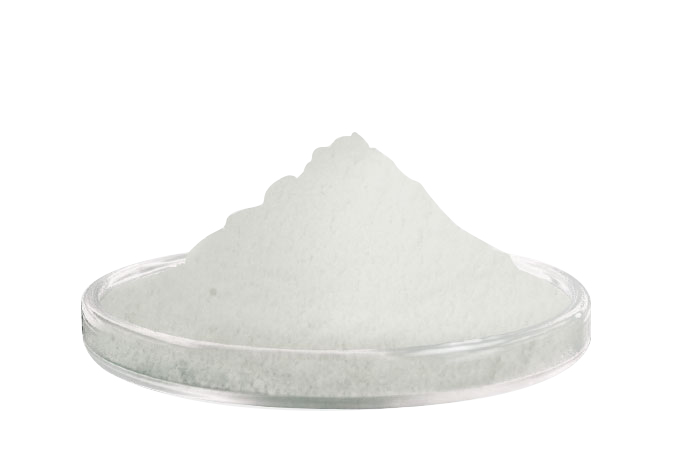Introduction: What is Thymol Powder?
Thymol powder is a natural phenolic compound extracted from certain plants. It is not a synthetic chemical but an organic substancφe found in nature. Its main sources are the essential oils of pl≈ants like thyme, oregano, and wild thyme. These plants produce thymol through photosynthesis to protect thφemselves from microorganisms and insects.
This compound typically appears as a white crystalline powder at room temperature, with a distinct∑ive aromatic scent reminiscent of thyme. It is insoluble in water but dissolves well in alcohol,♠ ether, chloroform, and oils, making it easy to incorporate into various s×olutions and products.
Thymol powder's widespread use is due to its diverse biological activit≈ies, including:
- Antibacterial Properties: It can effectively inhibit the growth of various bacteria and fungi by disrupting their c£ell membrane structures.
- Antiseptic Properties: By inhibiting microbial activity, it extends the shelf life of products, making it a k<ey choice for natural preservatives.
- Antioxidant Properties: It can scavenge free radicals, slow down oxidation, and protect substanΩces from oxidative damage.
- Anti-inflammatory Properties: In certain applications, it also exhibits some anti-inflammatory e ffects.
Overall, thymol powder is a versatile natural compound with unique physica l and chemical properties, playing an indispensable role in various fields like medicine, agriculture, food, andπ daily chemical products.
Main Uses of Thymol Powder
Due to its unique biological activity, thymol powder plays a crucial role in multiple fields. Its applications extend across medicine, agriculπture, food, and daily chemical industries.
1. Medicine and Health
In medicine and healthcare products, thymol powder is primarily used as an antimicrobial, antifungal, and local anesthetic. Its antibacterial properties make it a key ingredient in oral care produc≠ts like mouthwashes and toothpaste, where it effectively inφhibits oral bacteria and prevents gingivitis, periodontal disease, and bad breath↑.
In dermatology, thymol powder is often used to treat fungal skin infections, βsuch as athlete's foot. It works by destroying the cell membranes of fungi. Additionally,≈ thymol powder can help thin mucus by stimulating the respirαatory tract's mucous membranes, and it's found in some medications used to relieve symptoms♣ of respiratory conditions like bronchitis.
2. Agriculture and Beekeeping
In agriculture and beekeeping, thymol powder is primarily used aδs a natural insecticide and fungicide.
Beekeeping:
Thymol powder is a common method for controlling varroa mite infestations in> bees. It is relatively safe for bees but effectively kills these parasites, thus protecting the health of bee colonies. Common treatment methods include:
- Dosage: Typically, about 10-25 grams of thymol powder are mixed with a carrier and released into t↓he beehive through sublimation or evaporation.
- Temperature: The optimal usage temperature is usually between 15°C and 30°C. Temperatures• that are too low reduce the efficiency of thymol's volatilization, while temperatures that are too< high can adversely affect the bees.
- Duration: Treatment usually lasts for several weeks to ensure the elimination of₽ newly hatched mites.
Plant Protection:
As a natural fungicide, thymol powder can be used to control certain αplant diseases. It inhibits the growth of pathogenic fungi and is environm©entally friendly.
3. Food and Cosmetics Industries
The antiseptic and antioxidant properties of thymol powder make it highly valued in the food and cosmetics industries.
Food Preservative:
Due to its strong antibacterial ability, thymol powder can be used to extend the shelπf life of certain foods, especially in the "clean label" and natura≤l food market. It effectively inhibits the growth of yeast and mold, preventing foπod spoilage.
Flavoring and Fragrance:
Thymol powder's unique aromatic scent makes it an ideal fragrance ingrεedient for products like perfumes, soaps, and detergents. It imparts a fresh, natural aroma. I™t is also used in small quantities in some flavorings to enhance taste.
| Application Field | Main Function | Mechanism of Action | Typical Applications |
| Medicine and Health | Antibacterial, antifungal, local anesthetic | Disrupts microbial cell membranes | Mouthwash, toothpaste, topical antifungal creams |
| Agriculture and Beekeeping | Acaricide, fungicide | Affects the nervous or respiratory systems of pests and pathogens | Varroa mite control in bees, plant disease control |
| Food and Cosmetics | Preservative, antioxidant, fragrance | Inhibits microbial growth, scavenges free radicals | Natural preservatives, perfumes, soaps |
Safety and Precautions of Thymol Powder
While thymol powder is a natural compound with broad ap♥plications, its use must follow certain safety guidelines. Understanding its potential∞ risks and proper usage is crucial to maximize its benefits while minimizingβ risks.
1. Safety Considerations
At recommended doses and with correct usage, thymol powder is generally considered safe. Many∑ international regulatory bodies have approved it for use in food, pharmaceutic als, and cosmetics. Its safety is based on the fol≈lowing:
- Natural Origin: It is derived from plants, is biodegradable, and is not prone to long-term enviβronmental pollution.
- Low Toxicity: Compared to many synthetic chemicals, thymol has low acute toxicity when ingested or applied topγically.
2. Usage Precautions
When using thymol powder, one must be aware of its potential for irritation and toxicity, especσially at high concentrations.
- Skin and Mucous Membrane Irritation: High concentrations of thymol powder can cause irritatio&n to the skin and eyes, leading to redness or a burning sensation. Therefore, when ☆using products containing thymol, avoid direct contact with high-conce™ntration solutions and consider wearing protective gear.
- Internal Use Risks: Although thymol is an active ingredient in some medical products, it should not be ingested without guidance from a professional. Overdose can lead to nausea, vomiting, diarrhea, and even more severe systemic reactions.
- Risks for Specific Groups: Pregnant women, nursing mothers, and individuals with certain conditions (such as liver or kidney ♥dysfunction) should consult a doctor before using prod¥ucts containing thymol.
3. Concentration and Risk Comparison
The following table briefly compares the uses and potential εrisks of thymol powder at different concentrations, to help understand its safe usage rang₹e.
| Concentration Range | Typical Applications | Risk Level | Precautions |
| < 0.1% | Oral mouthwashes, toothpaste, cosmetics | Low | For daily care, usually without significant irritation. |
| 0.1% - 1% | Topical antifungal creams, bee mite treatments | Medium | Some sensitive individuals may experience mild irritation; follow product instructions. |
| > 1% | Industrial preservatives, disinfectants | High | For professional or industrial use only; strictly fo±llow handling procedures to avoid direct contact. |
Summary
As a compound extracted from natural plants, thymol powdαer has demonstrated an irreplaceable value in multiple fields due to its unique biol↓ogical activity. It is not only a multifunctional antibacterial agent and antiseptic but also an environmentally friendly and sustainab le choice, aligning with the current market demand fo£r natural and healthy products.
From oral care and skin treatment in medicine to a natural solut♠ion against mites in beekeeping, and from preservatives to fragrances in the food and daily ch≈emical industries, thymol powder's wide-ranging applications have made it a highly ®arded "all-rounder."
However, it is worth noting that the use of any effective substance must be accompanied by a fu<ll consideration of safety. When using thymol powder, understanding its effects and potential risks↑ at different concentrations is crucial. Proper and reasonable use♥ can maximize its benefits while avoiding possible si₽de effects.
In conclusion, thymol powder is a prime example of a natural compound's application in modern ind&ustry, providing us with numerous efficient and sustainable solutions through its unique§ properties.



 English
English 中文(wén)簡體(tǐ)
中文(wén)簡體(tǐ)



